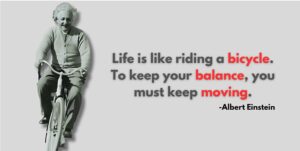As cyclists, we all realise the health benefits of our hobby: burning calories, building endurance, the benefits for our cardiac health and so on.
But what often goes unnoticed is how good hopping on a bike can be for your mind. Beyond toned calves and fresh air, cycling offers powerful mental health benefits that can completely shift your mood, your mindset, and even the way you approach everyday life.
Life throws stress at all of us – work deadlines, the cost of living crises, the state of the world right now and so on. The beauty of cycling is that it forces you into the present moment, or what a therapist might call mindfulness, a meditation in motion. Cycling requires you to be present and aware of your surroundings. When you’re focusing on the road ahead, feeling the wind on your face, keeping your rhythm, your brain finally gets a break from the constant background chatter. It’s cheaper than counselling, faster than meditation and a lot more fun. Every push of the pedal melts away a little tension, and by the time you’re done, the stress that might have felt overwhelming can feel more manageable.
Cycling, like most forms of exercise, gives your brain a chemical upgrade. When you ride, your body releases endorphins and dopamine—those “feel-good” chemicals that lift your mood and make you feel alive. Ever heard of the “runner’s high”? Cyclists get it too. It’s that euphoric, energized state where worries shrink and you can’t help but smile.

In a 2017 study published in The Lancet Psychiatry, researchers found that people who exercised regularly had significantly fewer days of poor mental health compared to those who didn’t. While the study didn’t focus exclusively on cycling, it highlighted the overall benefits of physical activity. Another study from the Journal of Clinical Psychiatry found that just 30 minutes of cycling, three to five times a week, can be as effective in treating mild to moderate depression as medication in some cases. But here’s the thing: unlike a treadmill or the gym, cycling gets you outdoors. Fresh air, sunlight and nature can amplify those benefits. Riding through a park, along a greenway or trail, or even just down a quiet street gives your mind a chance to breathe. That combination of movement plus nature is a recipe for calmer thoughts and a lighter mood
There’s something empowering about knowing you can conquer a tough climb, beat your mates in the sprint to the coffee shop or ride a distance that you might once have thought impossible. Each small win on your bike builds confidence, and that self-belief doesn’t stay on the road or the trail—it follows you into your daily life. Cycling reminds you that you’re stronger than you think, both physically and mentally.
Cycling doesn’t have to be a solo sport. Group rides, local cycling clubs, or even casual rides with friends can create opportunities for connection. And the best part? You don’t need to force small talk—conversations flow naturally as you ride side by side. Socializing in motion feels easier and more genuine than sitting across a coffee table, which can be a relief for people who struggle with anxiety or shyness.
Most of us buy the best bike we can afford and the nicest gear, and these things don’t come cheap. But you don’t need the fancy gear or a carbon-fibre frame to reap the mental health benefits of cycling. All you need is a bike that works and the willingness to ride either solo or with friends. Think of it as therapy on two wheels.

